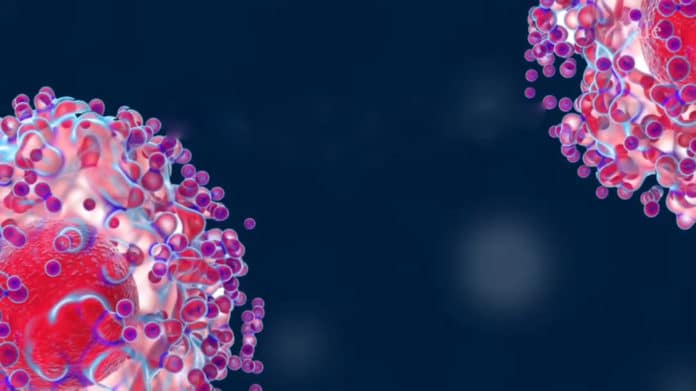Salmonella Typhi is bacterias that cause typhoid fever. The bacteria infect the intestinal tract and the blood.
The lab of Yale microbiologist Jorge Galan explored an evolutionarily ancient defense system possessed by mitochondria.
Using advanced imaging technology, scientists discovered that mitochondria produce the compound itaconate to combat Salmonella Typhi. The compound penetrates cellular defenses that protect the pathogen and disrupt its metabolism and ability to grow.
The study links a metabolite produced in the mitochondria after stimulation of innate immune receptors and a cell-autonomous defense mechanism that restricts the replication of an intracellular bacterial pathogen.
Journal Reference:
- Meixin Chen et al. Itaconate is an effector of a Rab GTPase cell-autonomous host defense pathway against Salmonella. DOI: 10.1126/science.aaz1333
